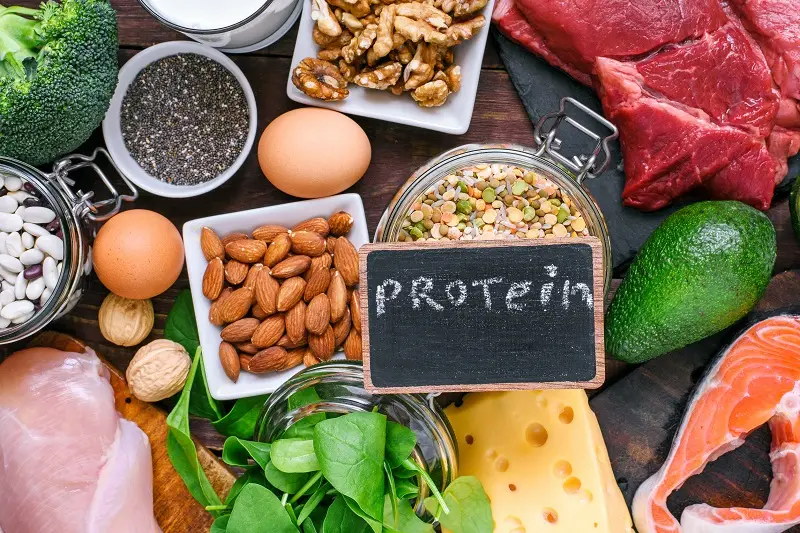Understanding Signs of Malnutrition After Gastric Sleeve Surgery

Nutritional deficiencies after gastric sleeve surgery can occur through a variety of warning signs that need to be addressed on an urgent basis. Patients can experience chronic fatigue and weakness in muscles that does not decrease with rest, along with excessive hair loss or brittle texture changes.
Some other indicators are abnormally dry skin, delayed cut or wound healing, and unusual cravings for things that are not food, such as cornstarch or ice. The most common deficiencies are protein calorie malabsorption, iron-deficiency anemia, and deficiencies of key nutrients like vitamin B12, folate, and fat-soluble vitamins A, D, E, and K.
You’ve done your gastric sleeve procedures, kudos for taking the wonderful step towards healthiness! As much as weight loss gets highlighted, there exists, however, an unobtrusive side effect of which you must keep informed: malnutrition.
Why is that? Following gastric sleeve, your stomach is re-structured and smaller to about 15–20% of its original size. With smaller size, there is smaller food intake, and that is perfect for weight loss. But there is a trap, less portion means fewer chances to absorb your vital vitamins, minerals, and nutrients. Over time, this will result in nutritional deficiencies if not addressed accordingly.
And the worst part? Malnutrition doesn’t develop overnight. It creeps up on you and presents itself as fatigue, brittle hair and skin, and mood swings. Catching it at an early stage can save you from long-term health issues.
In this tutorial, we shall discuss:
Why does malnutrition occur following gastric sleeve surgery
Common signs and symptoms to look out for
Chronic sequelae of deficiencies
Prevention methods and healthy recovery tips
Why Malnutrition Happens After Gastric Sleeve Surgery?
Malnutrition after a gastric sleeve isn’t about you “doing something wrong.” It’s a natural consequence of how your digestive system changes:
Smaller stomach volume → Less capacity for nutrient-rich foods
Reduced appetite → You eat less, which can reduce nutrient intake
Faster gastric emptying → Food spends less time in your stomach, so absorption changes
Food intolerances → After surgery, some patients avoid nutrient-rich foods like red meat, dairy, or whole grains because of intolerance
But it’s not just how much you eat. Your nutrient absorption also shifts because:
| Cause | Effect on Nutrition |
|---|
| Reduced stomach acid | Lowers absorption of iron, calcium, and vitamin B12 |
| Lower protein intake | Increases risk of muscle loss and hair thinning |
| Smaller portions | Less access to fat-soluble vitamins (A, D, E, K) |
| Faster digestion | Decreased nutrient contact time with intestinal walls |
Early Warning Signs of Malnutrition after Sleeve Gastrectomy

That’s the dilemma: initial malnutrition in the post-gastric sleeve patient is usually not apparent. Patients blame it on “normal recovery fatigue” or stress.
Be vigilant for these early signs:
Chronic weakness or fatigue — You may have low iron, B12, or protein levels in your body
Hair loss and brittle nails — Signs of protein deficiency and lack of zinc
Dry scaly skin — May be due to low vitamin A or
Mood swings and brain fog — Usually associated with low B vitamins or omega-3s
Recurrent headaches — An indication that the body can be low on certain minerals, such as magnesium
Pro Tip: You’re 3-6 months post-op and running on fumes? Don’t chalk it up to “just recovery.” It may very well be your body’s first SOS call.
Advanced Symptoms You Should Not Overlook
Unless early signs are found, deficiencies progress to more serious issues:
1. Protein Lack (Protein-Energy Malnutrition)
Without sufficient protein, your body will consume your own muscle for fuel.
Symptoms:
General thinning of hair or scarring alopecia
Puffy swelling on the feet and ankles
Repeating weakness after restiness
2. Iron-Deficiency Anemia
Iron absorption depends heavily on stomach acid — and as gastric sleeve decreases acid, iron deficiency runs amok.
Symptoms:
Pale complexion
Definition
Shortness of breath after mild activity
Dizziness or lighthead
3. Vitamin B12 Deficiency
B12 deficiency is infamous following gastric sleeve surgery. If left unsupplemented, it can cause nerve damage.
Symptoms:
Tingling sensations in feet and hands
Memory loss
Mood shifts such as depression or irritability
4. Deficiency in Calcium and Vitamin D
Both of these support each other in strengthening bones. Lack of either leads to osteoporosis and fracture.
Symptoms:
Muscular spasms
Aching bones
Brittle teeth
Best Prevention Strategies

Protein will now take up 50–60% of your plate with gastric sleeve surgery. Lean meats, eggs, Greek yogurts, and vegetable proteins are now your closest supporters.
1. Follow a Structured Supplement Plan
At Healthy Life Bariatrics, we design personalized supplementation regimens:
Recommended Supplements After Gastric Sleeve| Supplement | Why It’s Needed | Typical Dosage |
|---|
| Multivitamin | Covers basic gaps | Daily |
| Protein powder | Preserves muscle mass | 60–80g/day |
| Calcium citrate + Vitamin D | Protects bones | 1,200–1,500mg/day |
| Iron | Prevents anemia | 45–60mg/day |
| Vitamin B12 | Supports nerve function | Sublingual or injection monthly |
| Clinical note: Dosages are typically within the post–sleeve range and should be individualized based on laboratory results and tolerance. |
2. Prioritize Protein-Rich Foods
Protein should make up 50–60% of your plate after gastric sleeve surgery. Lean meats, eggs, Greek yogurt, and plant-based proteins are your new best friends.
3. Stay Hydrated
Dehydration mimics malnutrition symptoms like fatigue and dizziness. Aim for 64+ ounces of water daily.
4. Schedule Regular Check-Ups
Even if you “feel fine,” stay ahead of deficiencies with quarterly labs and follow-up consultations.
Your Partner in Safe & Successful Weight Loss Surgery in Los Angeles

Dr. Babak Moein and team celebrating their amazing clients at Healthy Life Bariatrics following successful gastric sleeve surgery.
Bariatric surgery can be transformative, but sustainable success requires experienced oversight and comprehensive nutritional support every step along the way. Being able to recognize early warning signs of deficiencies in nutrients, adhering to a personalized supplement regimen, and having regular health assessments are crucial steps toward your transformation as a means to enhance rather than impair your overall well-being.
Dr. Moein and the staff at Healthy Life Bariatrics in Los Angeles provide comprehensive weight loss solutions, including gastric sleeve, gastric bypass, gastric balloon, and lap band surgery. We are committed well beyond the operating room we provide complete pre-op preparation, surgical skills, and one-on-one long-term follow-up care to ensure that each patient not only loses weight, but remains healthy for many years to come.
From your initial consultation all the way to recovery, our Los Angeles office offers personalized care plans, dietary guidance, and follow-up care to help you thrive every stage of your weight loss.
Ready for a change? Call (310)-861-4093 to schedule your consultation with Dr. Moein and learn which weight loss surgery procedure is right for you.





